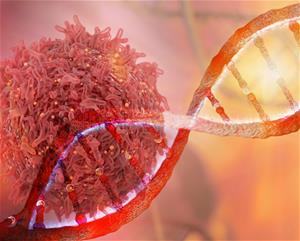This is the fifth post in a seven-blog series highlighting the achievements of the 2019 ACCC Innovator Award Winners. Join us at the upcoming ACCC 36th National Oncology Conference, Oct. 30 – Nov. 1, 2019, in Orlando, Florida, where all of this year's Innovator Award recipients will be presenting on their pioneering initiatives.
It has historically been difficult to obtain genetic cancer counseling and testing services in Yuma, Arizona. There are no genetic counselors in this geographically expansive, medically underserved city of 200,000. If patients did want to receive genetic counseling services, they often had to travel more than 180 miles to do so.
“Referring patients to genetic testing has entailed significant financial costs and transportation hurdles for patients,” says Erica Martinez, RN, CHPN, OCN, an oncology nurse navigator at 2019 ACCC Award recipient Yuma Regional Medical Center Cancer Center. “Many of our patients are elderly, Spanish-speaking, or struggle with illiteracy, and they have limited financial resources. So navigating travel to a facility out of town to talk to a genetic counselor creates several barriers to care.”
Until recently, one oncologist at Yuma Cancer Center helped his patients obtain genetic counseling and testing by screening them and referring them to a genetics laboratory outside of Yuma. But when the oncologist retired, there were no comparable services available in the area. Yuma Cancer Center aimed to change this by partnering with genetics testing company Myriad Genetics to offer services to the local population.
“In our collaboration with Myriad, we identify individual patients who may be candidates for genetic testing,” explains Martinez. “Then Myriad hosts tele-education sessions in which we facilitate patient consultations with genetic counselors.” To further ease access, Myriad staffs Spanish-speaking genetic counselors and interpreters and provides Spanish-language patient education materials.
The new program is a collaborative project that involves the participation of the cancer center’s registration team, medical assistants, nurse navigators, and medical oncologists. The process of screening patients for possible genetic abnormalities has been incorporated into the center’s typical workflow for registering new patients.
But launching the program was not without its challenges. Martinez says when Yuma Cancer Center began screening patients for possible genetic abnormalities in 2018, the paper-based survey they used proved too cumbersome for patients. “They were getting the questionnaire with a lot of other paperwork,” explains Martinez, who says the center did not want to overwhelm newly diagnosed patients any more than they already were.
Martinez was also surprised to learn that many pf the cancer center's patients struggled with the questionnaire due to illiteracy. “Now,” says Martinez, “when new patients come to their first appointment, our staff assists them with a short cancer quiz on an electronic tablet as part of the registration process.”
If the cancer center determines that a patient is a possible candidate for genetic testing, it facilitates a tele-education session with one of Myriad’s genetic counselors, who assesses the patient, and, if warranted, makes a referral for genetic testing. Martinez says her organization then collects samples from their patients and sends them out to be tested. When test results arrive, providers at Yuma Cancer Center review those results and explain their implications to patients during an office visit. Patients are given the option of receiving post-test genetic counseling through Myriad at no additional cost, or they may choose to be referred to a tertiary facility for in-person genetic counseling.
This arrangement is succeeding in getting more of Yuma Cancer Center’s patients screened and tested. In the eight months preceding the launch of the partnership with Myriad Genetics, only 24 of the patients at Yuma Cancer Center were referred for genetic testing. In the first four months of the new program, 54 patients out of the 222 patients the cancer center screened underwent genetic testing.
Martinez says the next step in the program is to create a process to notify family members when a patient tests positive for genetic cancer biomarkers. “We need to figure out how best to notify relatives and get them tested too,” says Martinez. “We are working on creating a streamlined process.”
Martinez says she hopes the small oncology genetics program at Yuma Cancer Center ultimately leads to the creation of a comprehensive, high-risk clinic that makes genetic counseling services available to the entire community. “We hope to bring these resources to our patients rather than having to access them remotely,” says Martinez.
Learn more about improving patient access to genetic testing when Erica Martinez presents at the ACCC 36th National Oncology Conference, Oct. 30 – Nov. 1, 2019, in Orlando, Florida. Learn more and register today.

